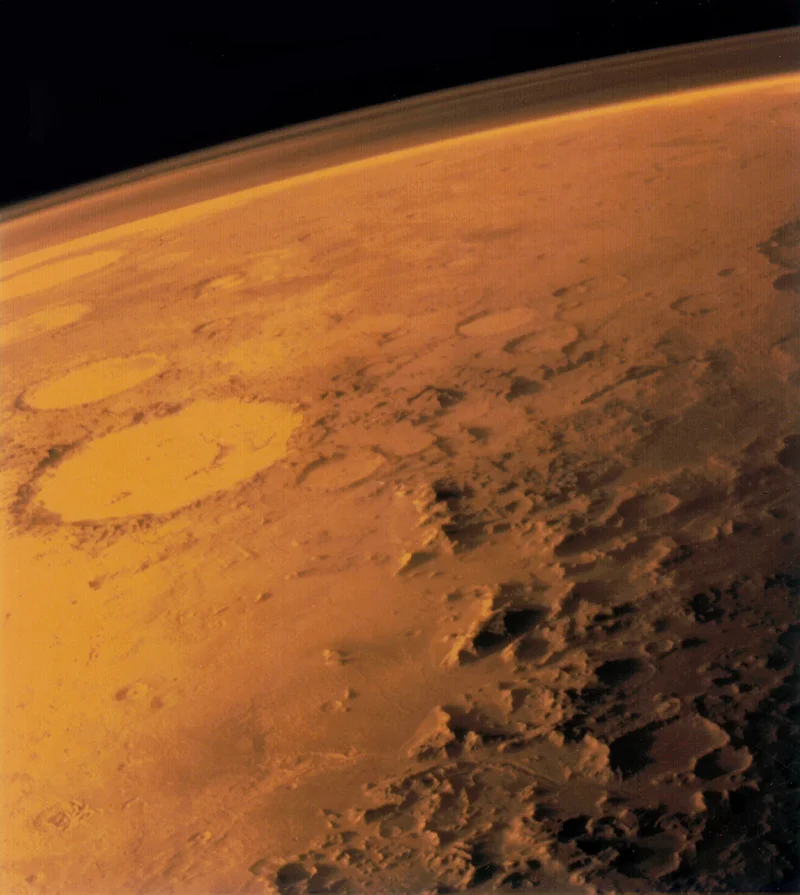Mars: NASA's ESCAPADE Mission Launch and the Search for Alien Engineers
Alright, buckle up, because things are about to get really interesting.
You know, we've been staring up at Mars for centuries, dreaming of little green men and lost civilizations. But what if the Red Planet is actually a mirror, reflecting back our own potential? What if it's not just a place to visit, but a catalyst for massive innovation right here on Earth?
That's the thought that's been buzzing in my head ever since I heard about NASA's upcoming ESCAPADE mission. Two twin satellites, Blue and Gold (go Bears!), are about to embark on a journey to map Mars' magnetosphere in 3D. Now, I know what you might be thinking: "Magnetosphere? Sounds boring." But trust me, this is anything but boring. NASA’s ESCAPADE mission to Mars — twin UC Berkeley satellites dubbed Blue and Gold — will launch in early November
The Big Idea: Mars as a Crucible for Innovation
The real story here isn't just about understanding Mars' atmosphere, it's about what that understanding unlocks for us here at home. See, Mars is a harsh mistress. No global magnetic field, a wispy excuse for an atmosphere, and radiation levels that would make your hair fall out. So, if we're serious about setting up shop there – and I believe we should be – we need to get seriously creative.
And that's where the magic happens.
Think about it: every problem we solve on Mars – from radiation shielding to closed-loop life support systems – is a technology we can adapt and use right here on Earth. Suddenly, those "Mars problems" become opportunities to revolutionize everything from energy production to sustainable agriculture. It's like turning a barren desert into a blooming oasis, not just on another planet, but in our own backyards.
And ESCAPADE is the first step. By mapping the Martian environment in unprecedented detail, it's giving us the data we need to start designing those solutions. We’re talking about understanding how solar storms impact the planet, how to communicate reliably across vast distances, and how to protect future Martian settlers from deadly radiation.

"Understanding how the ionosphere varies will be a really important part of understanding how to correct the distortions in radio signals that we will need to communicate with each other and to navigate on Mars," said ESCAPADE principal investigator Robert Lillis.
But here's the kicker: ESCAPADE isn't just following the same old path to Mars. It's pioneering a new trajectory, a sort of "orbital on-ramp" that could revolutionize how we send spacecraft to the Red Planet. Instead of waiting for the perfect planetary alignment, ESCAPADE is taking a detour through a Lagrange point, a gravitational sweet spot in space. This flexible trajectory could allow hundreds, maybe even thousands, of crewed and uncrewed ships to head out during every alignment.
It's like building a space highway, opening up Mars to a flood of exploration and development.
This reminds me of the early days of the internet. Back then, people thought it was just a way to share research papers. They didn't see the potential for e-commerce, social media, or streaming cat videos. In the same way, I think we're just scratching the surface of what Mars can do for us. It's not just a destination, it's a challenge – a crucible that will force us to innovate in ways we can't even imagine.
I saw a comment on a Reddit thread about ESCAPADE that really resonated with me: "This isn't just about Mars, it's about pushing the boundaries of what's possible. It's about inspiring the next generation of scientists and engineers." And that's exactly right. This mission, and others like it, are igniting a spark of curiosity and innovation that will ripple through society for decades to come.
Of course, with great power comes great responsibility. As we venture out into the cosmos, we need to be mindful of the ethical implications. Are we prepared for the possibility of discovering life on Mars? How do we ensure that space exploration benefits all of humanity, not just a select few? These are the questions we need to be asking ourselves as we reach for the stars.
But I, for one, am incredibly optimistic. I believe that Mars holds the key to unlocking a brighter future for all of us. It's a chance to rewrite the rules, to build a more sustainable, more equitable, and more innovative world. And that, my friends, is something worth getting excited about.
The Future is Written in Red
Let's be real, Mars isn't just a planet; it's a symbol. A symbol of our ambition, our ingenuity, and our unwavering belief in the power of human potential. And with missions like ESCAPADE leading the way, that potential is about to explode.
Tags: mars
Jeld-Wen Layoffs: 850 Jobs Cut – What's the Real Story?
Next PostPoland's Drone Wall: Russia vs. Security
Related Articles
